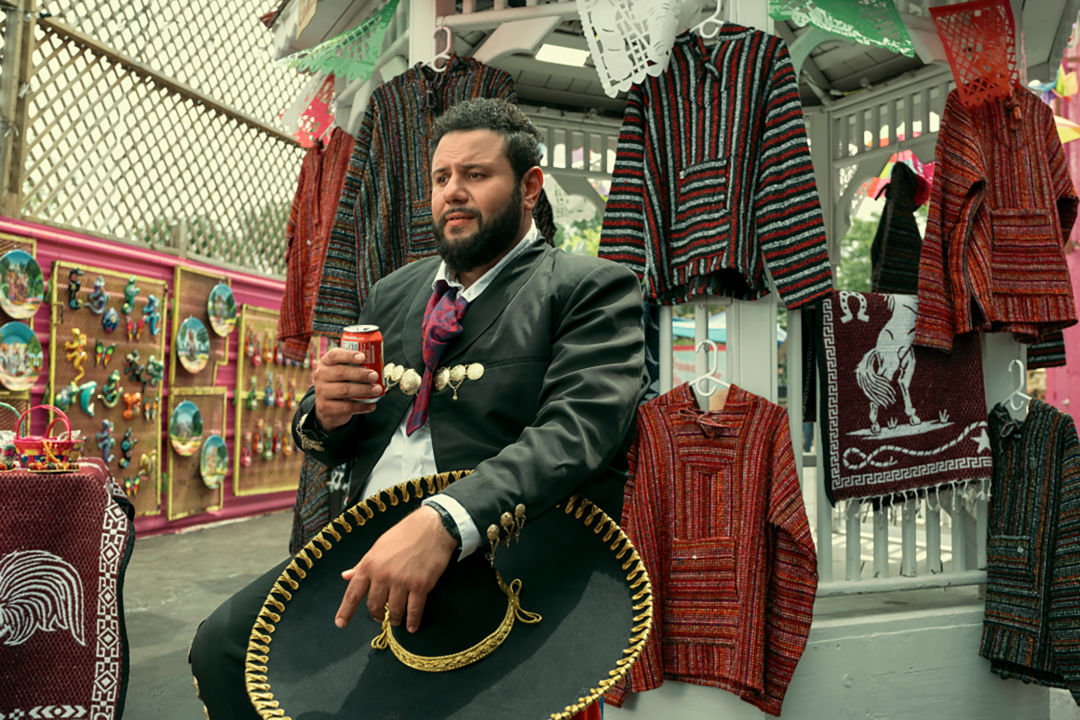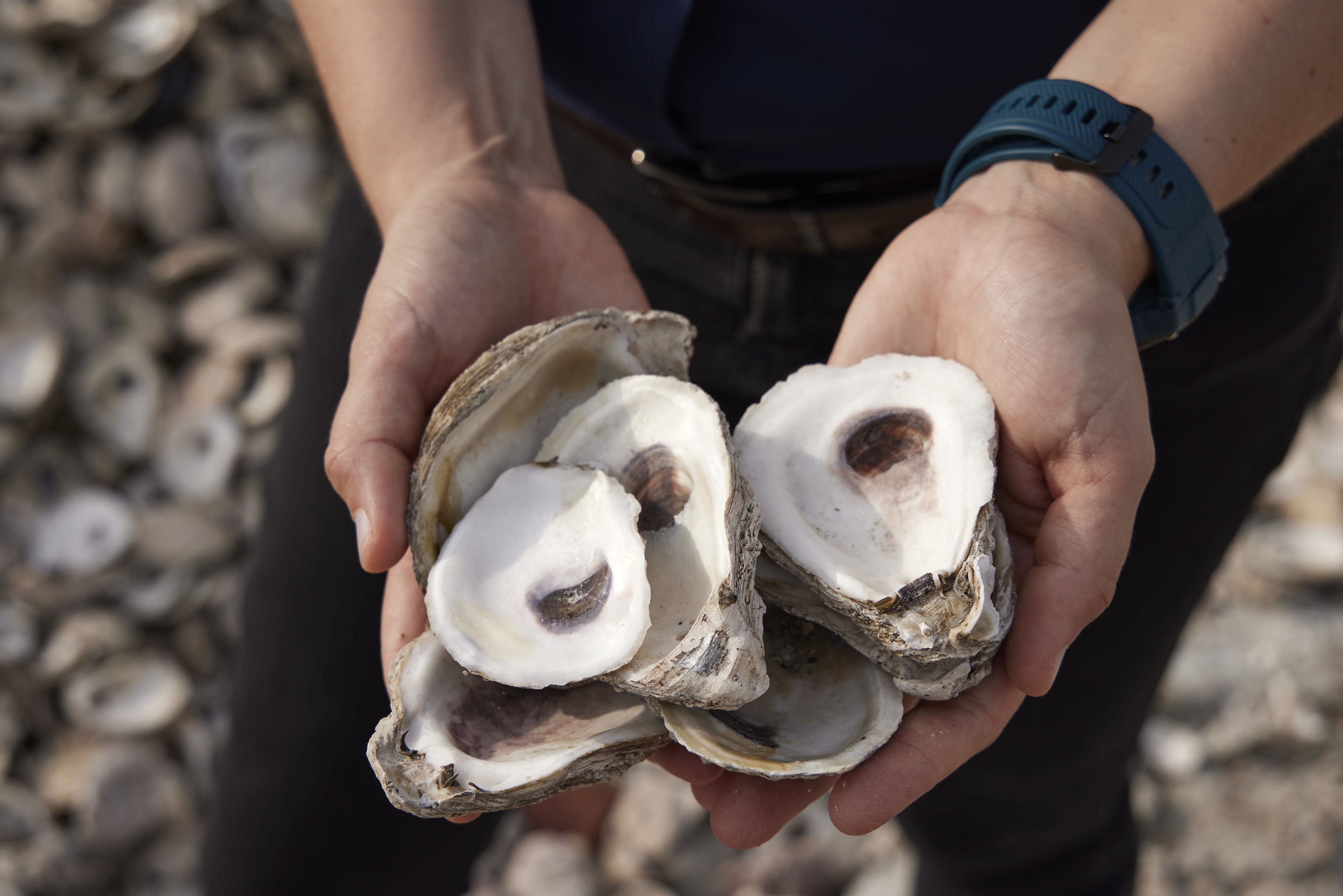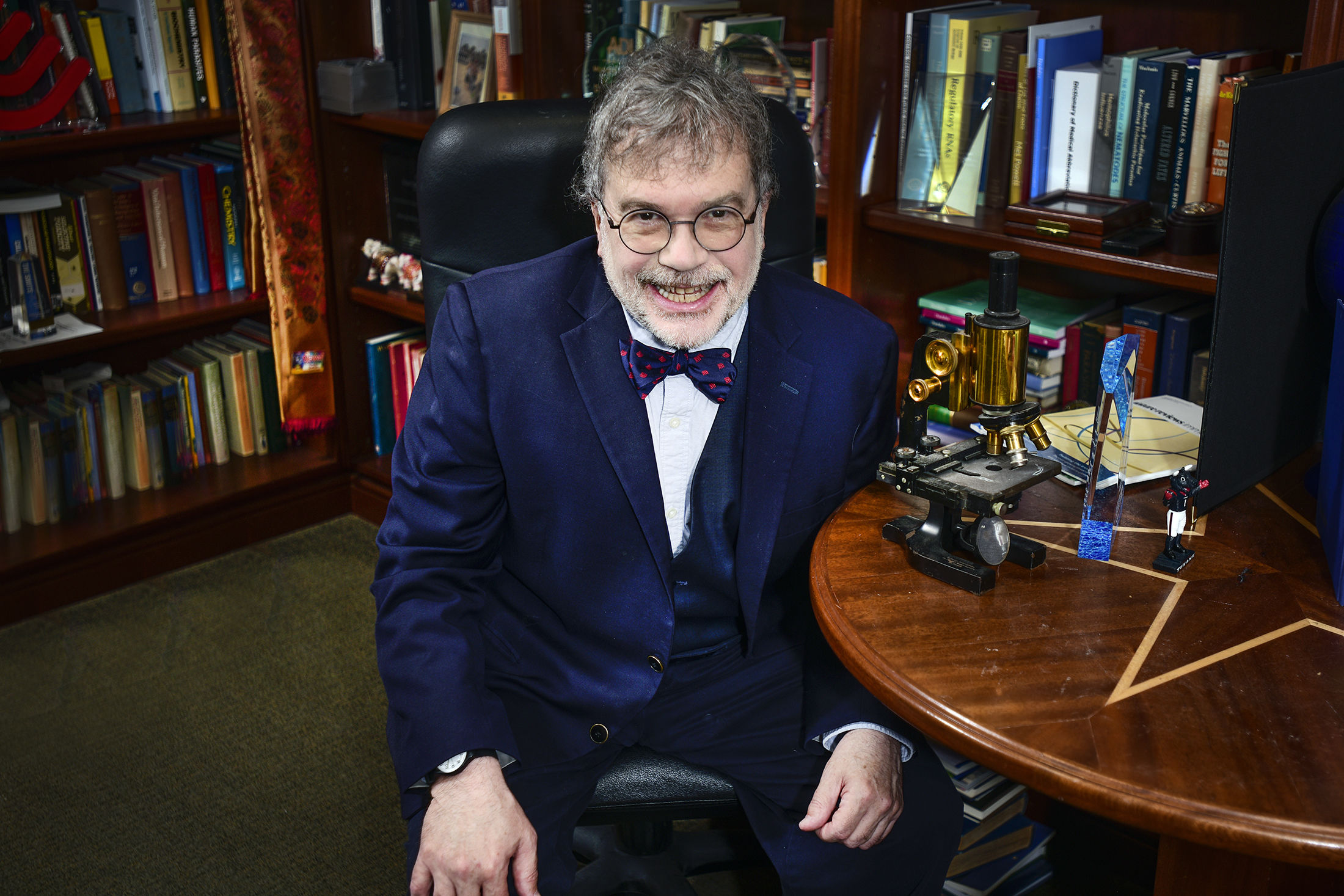Why Mo Means Even More to Houston than You Realize

Once upon a time, there was a not-so-little city, in a not-so-little state. It mostly chugged along thanks to the chemical refineries that powered the world and the doctors who spent their lives peering into microscopes to search for clues on how to cure the worst kinds of diseases.
Then one day, somebody—nobody can really say who—thought that maybe the not-so-little city would like to make some movies. Not just any movies, either. Hollywood movies, it was promised. Big names! Big stars! Big money! And so it made some movies.
One was about a cop who was also a cyborg…or a cyborg who was also a cop? Another was about people who had to die before they turned 30, to make room for more people. Oh, and the one with all those disaffected Gen-Xers.
It was nice, for a time. But then the movies started setting up shop in the far-away lands of Louisiana and New Mexico and Georgia and Canada instead. Hollywood didn’t need the not-so-little city anymore, especially since it didn’t enjoy the same tax incentives that these other places started to offer. And while excellent films are still made and screened every year along the banks of the bayous, Houston’s thriving arts economy isn’t exactly being bolstered by major TV and film studios these days. Then came along one significant, 97-percent-on-the-Tomatometer exception.
“It’s pretty spectacular that I’ve heard somebody call Mo the most Houston TV show there ever has been,” says Alfred Cervantes, executive director of the Houston Film Commission.
Originally released on Netflix in 2022, Mo debuted its heavily anticipated second season on screens this past January. Created by Houston stand-up comedian Mo Amer and fellow funnyman Ramy Youssef, the dramedy series is based partially on Amer’s experiences as a Palestinian refugee growing up in Houston’s Alief neighborhood, struggling with all the immigration and employment legal ramifications involved. The show also addresses issues of racism, ableism, xenophobia, substance abuse, generational trauma, and other themes always in need of exploration. And it does so with Amer’s proprietary blend of comedy, sincerity, fearlessness, and—of course—olive oil. (Amer did not return a request for an interview.)
Mo examines overarching social ills, yes, but also joyfully celebrates Houston’s multicultural milieu in ways few, if any, other media does. The show is shot in the city itself, providing employment opportunities for local cast and crew and boosting businesses like the Breakfast Klub, Bludorn, Croissant-Brioche, and the collection of Palestinian-owned businesses along Richmond and Hillcroft. But it’s also a major platform for exposing, if not outright introducing, viewers to what Palestinian history and culture is actually like.
“In general, we’re underrepresented in Hollywood and TV shows. So to have Mo come out on the biggest streaming platform in the world…was amazing for the community,” says Ali Younes, a Houston-based real estate and contracts attorney and board member of the Palestinian American Cultural Center. “Everybody that we knew, whether Palestinian or not, was talking about it… It made us feel like we were included. It made us feel like we were not forgotten, and our culture was showcased for the whole world to see. They see a different side of Palestinians that maybe the mainstream news or media does not show.”
Younes enjoyed answering questions from people who asked him about aspects of Palestinian culture that they learned about in Mo, particularly involving the ever-present olive oil. His grandmother also grew up in Alief, regarded as one of Houston’s most ethnically diverse neighborhoods, so he recognized many of the physical landmarks and social touchpoints that characterize the local Palestinian experience.
“I remember them going to smoke hookah, and the coffee shop where they went to go play cards. That’s a very unique Houston-Palestinian perspective. There’s a lot of community late nights,” Younes says. “We are chill. Night activity is going to a café and smoking a hookah and playing cards, or talking with friends and catching up drinking coffee or tea.”

Mo put Houston on the map, he says. And it wasn’t just the city’s Palestinian friends and neighbors who benefited from the show’s presence. For Space City, the 1980s and ’90s were what Cervantes calls “the good old days, as far as film production.” At that time, cities weren’t yet offering tax incentives for major Hollywood studios to shoot films and TV shows within their borders. Producers would go to different film commissions across the United States seeking the right fits for their projects, and Houston famously worked for RoboCop 2, Logan’s Run, and Reality Bites, among many others.
But as Canada and, later, states like Louisiana, Georgia, and New Mexico began offering tax incentives to entice the film industry, Houston fell off Hollywood’s radar. Cervantes notes that lawmakers in Austin are being cooperative with film commissions across Texas in figuring out how to bring back entertainment industry employment opportunities, but it’s an ongoing challenge due to how the state’s tax statutes are organized.
Still, he remains optimistic that Mo’s success exemplifies what Houston can still provide movie studios.
“As I was watching season two, each episode, I thought it was going to wane where he speaks about Houston and shows Houston things on screen,” Cervantes says. “But it certainly did not. Throughout the whole show…he speaks very proudly of being from Houston.”
According to Houston Film Commission data, about 40 percent of season two’s crew were hired locally, almost double from the estimated 22 percent from season one. Shooting on location in Houston put money back into the city’s economy and opened some important doors for the growing community of working creatives.
“We have a good number more film professionals that live in the greater Houston area than we did three and a half years ago,” Cervantes says.
Katy-based actor and musician Rex Rosario worked on season two of Mo as an extra. Pay close attention and you’ll find his signature goth-punk look as he conducts important office business in scenes shot at downtown destination Post. He learned that Mo was casting via the Houston Film Commission, which routinely posts calls for local actors. Getting cast in the show directly led to other opportunities.
During downtime conversations on set, one of his fellow extras mentioned working as a simulated patient for University of Houston medical students. As a self-proclaimed “massive STEM fanboy,” Rosario thought it sounded like a fun gig to simultaneously build up his improv and acting skills while also helping future doctors practice proper bedside manner and diagnostic protocols. So he applied and was subsequently accepted. It’s a win-win for Rosario’s career, and, like Cervantes, he looks brightly upon Mo and its potential to attract more big studio opportunities for local talent.
“It’s amazing that the rest of the world is getting to see what Houston’s film scene has to offer. The entire show is practically built on Houston crew and cast members, and the city itself as a setting is almost its own character,” Rosario says. “Having this shiny crown jewel to show off is something that’s going to bring a lot of important eyes toward our film scene.”

Cervantes believes that, in total, Mo generated at least $24 million for Houston’s economy, including hotel stays and restaurant visits for the cast and crew members. Celebrated French–New American spot Bludorn was one such business that benefited from the show’s local presence. It served as the stand-in for the fictional Israeli fine-dining restaurant Tari in season two, closing for a day to shoot the scenes.
“Mo comes to the restaurant. He loves Bludorn. He really wanted to go back to one of his favorite Houston restaurants to do this piece that needed to be shot in a restaurant,” says Bludorn partner and director of operations Cherif Mbodji. “[He] put us in touch with his producer, who reached out to us and asked if we would be open to using Bludorn to film this episode. And we immediately agreed.”
He doesn’t know how many diners patronized Bludorn specifically because they saw it in Mo—that’s not exactly an easy-to-measure metric—but Mbodji says that at least a dozen people personally texted him when they spotted the restaurant on the show. This shared sense of recognition, excitement, and pride still bring about net benefits even if there isn’t a specific dollar amount attached to them.
“Mo is such a big deal. In the hospitality industry, like many businesses, advertisement is powerful, and having your name out there is incredible,” Mbodji says. “So for Mo to have selected Bludorn to be part of the show is an incredible honor, and we feel very fortunate to be able to be in that position.”
It’s an honor that extends beyond business and into Houston itself, sending positive reverberations throughout a multitude of communities that make this city something truly special. Mo financially benefited local cinematic talent, shined a spotlight on Houston businesses, and opened viewers up to Palestinian perspectives beyond their legendary love of olive oil. The series showed the world just how wonderful our city is to so many people, and everything Houstonians have to offer when we’re given the chance.
Disclosure: The author of this article auditioned for season two of Mo before working at Houstonia, but did not appear in the show.




